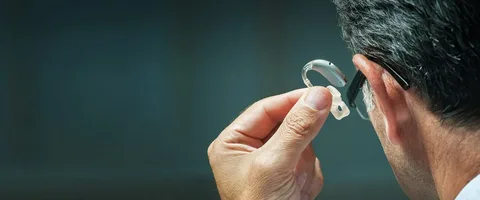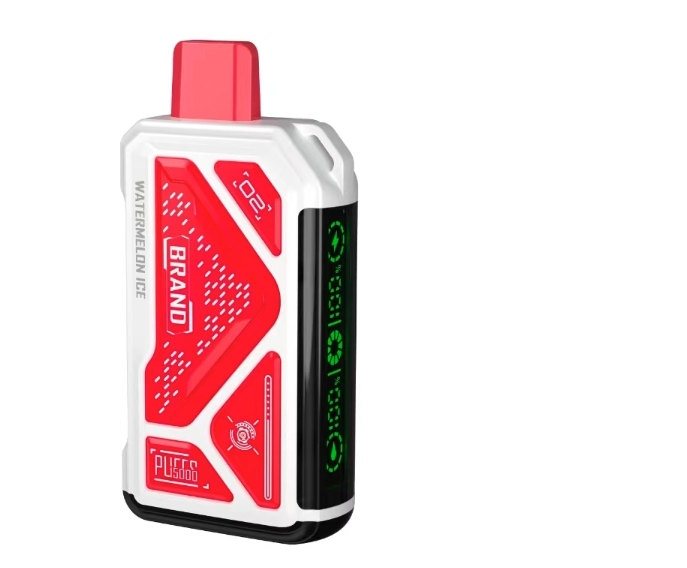Introduction: Understanding Tinnitus and Hearing Loss
Tinnitus, a constant ringing or buzzing sound in the ears, affects millions worldwide, including many in Pakistan. It can range from a minor inconvenience to a debilitating condition that significantly impacts daily life. While there is no universal cure, treatments are available to manage and reduce the symptoms of tinnitus.
In addition to tinnitus, hearing loss is another issue that many individuals face. One of the advanced tests used to assess hearing abilities, particularly in children and those unable to respond to traditional tests, is the Auditory Steady-State Response (ASSR) hearing test. This article explores effective tinnitus cure treatments in Pakistan and delves into the pricing and benefits of the ASSR hearing test.
Understanding Tinnitus: Causes and Symptoms
Tinnitus is often described as a ringing, buzzing, or humming sound in the ears that is not caused by any external source. Although it is not a disease, it is typically a symptom of underlying conditions, such as hearing loss, ear injury, or a circulatory system disorder.
Common Causes of Tinnitus
Several factors can lead to tinnitus, including:
- Noise Exposure: Constant exposure to loud noises, such as machinery or music, can damage the tiny hair cells in the inner ear, leading to tinnitus.
- Ear Infections or Blockages: Earwax buildup or infections can block the ear canal and cause temporary tinnitus.
- Aging: As people age, natural wear and tear on the auditory system can lead to hearing problems and tinnitus.
- Health Conditions: Conditions like high blood pressure, diabetes, or head and neck injuries may also cause tinnitus.
Symptoms of Tinnitus
The main symptom of tinnitus is hearing a sound that is not present externally. It may be:
- Ringing or buzzing
- Clicking or hissing
- Roaring or whooshing
The intensity, frequency, and type of noise may vary among individuals, and it can be either constant or intermittent.
Tinnitus Cure in Pakistan: Exploring Treatment Options
While a definitive cure for tinnitus may not exist, various treatments and therapies can help manage the condition. In Pakistan, medical professionals offer several options, from lifestyle changes to advanced therapies.
1. Lifestyle Changes
For some individuals, lifestyle changes can significantly reduce tinnitus symptoms. These include:
- Avoiding loud noise: Reducing exposure to high noise levels and using hearing protection can prevent tinnitus from worsening.
- Managing stress: Stress often worsens tinnitus, so adopting stress-relieving techniques like meditation and yoga can help.
- Improving sleep patterns: Poor sleep can exacerbate tinnitus, so establishing a good sleep routine is essential.
2. Sound Therapy
Sound therapy is one of the most commonly recommended treatments for tinnitus. It involves masking the sound of tinnitus by using external noise, such as white noise or natural sounds, to help the brain focus on external sounds rather than internal ringing.
- White noise machines: These devices produce background noise to mask tinnitus.
- Hearing aids: Some hearing aids come with built-in sound generators that produce white noise.
3. Tinnitus Retraining Therapy (TRT)
Tinnitus Retraining Therapy (TRT) combines sound therapy with counseling to help individuals become less aware of their tinnitus. Over time, the brain becomes accustomed to the sound, making it easier to ignore.
4. Cognitive Behavioral Therapy (CBT)
Cognitive Behavioral Therapy (CBT) is a form of talk therapy that focuses on changing the emotional response to tinnitus. By altering the negative thoughts associated with tinnitus, individuals can reduce their emotional distress and improve their quality of life.
5. Medications
Although no specific medication is designed to treat tinnitus, some drugs can help manage the underlying conditions that contribute to it. These may include:
- Antidepressants: Medications like amitriptyline can help manage the stress and anxiety associated with tinnitus.
- Anticonvulsants: Certain anticonvulsants may reduce the noise level experienced in tinnitus.
Understanding the ASSR Hearing Test: An Essential Tool for Hearing Assessment
The Auditory Steady-State Response (ASSR) hearing test is a critical tool used to assess hearing capabilities in individuals who cannot respond to standard hearing tests, such as young children or individuals with developmental challenges.
What is an ASSR Hearing Test?
The ASSR test is an objective hearing test that measures how the auditory nerve responds to sound. This test is particularly useful in estimating the severity of hearing loss, especially in those who are unable to communicate their hearing levels effectively.
How Does the ASSR Test Work?
During the ASSR hearing test, sound stimuli are presented to the patient through earphones. Electrodes placed on the scalp measure the brain’s response to these stimuli. The test is painless and non-invasive, making it ideal for children and patients with special needs.
Who Needs an ASSR Hearing Test?
The ASSR test is typically used in the following cases:
- Infants and young children: Since babies cannot respond to traditional hearing tests, ASSR helps assess their hearing ability accurately.
- Non-communicative individuals: People with developmental delays or cognitive impairments may benefit from this test.
ASSR Hearing Test Price in Pakistan
ASSR hearing test price in Pakistan varies depending on the clinic or hospital offering the service. On average, the price may range between PKR 10,000 and PKR 20,000. While this cost may seem high, it is a crucial investment in understanding and addressing potential hearing issues.
Advanced Hearing Tests for Comprehensive Diagnosis
In addition to the ASSR test, other advanced hearing tests can be used to assess auditory function:
- Otoacoustic Emissions (OAE): This test measures the sound waves produced by the inner ear when responding to external sounds. It helps detect hearing issues in newborns.
- Brainstem Auditory Evoked Response (BAER): This test measures the brain’s electrical activity in response to sounds and is particularly useful for diagnosing hearing loss in infants and young children.
Both tests, along with ASSR, provide a comprehensive understanding of an individual’s hearing capacity and aid in planning effective treatment.
FAQs: Tinnitus Cure and ASSR Hearing Test
1. Is there a permanent cure for tinnitus?
While no definitive cure exists, various treatments like sound therapy, cognitive behavioral therapy, and medication can help manage and reduce tinnitus symptoms.
2. How much does an ASSR hearing test cost in Pakistan?
The price for an ASSR hearing test typically ranges between PKR 10,000 to PKR 20,000, depending on the healthcare facility.
3. Can tinnitus be caused by stress?
Yes, stress can worsen tinnitus. Managing stress through relaxation techniques can help alleviate the symptoms.
4. How long does an ASSR hearing test take?
An ASSR hearing test usually takes around 30 to 60 minutes to complete, depending on the individual’s response.
5. Can sound therapy cure tinnitus?
While sound therapy may not cure tinnitus, it can significantly reduce the perception of ringing sounds, making it easier to cope with the condition.
Conclusion: Managing Tinnitus and Assessing Hearing Loss in Pakistan
In summary, while tinnitus may not have a one-size-fits-all cure, several effective treatments can help manage the condition. In Pakistan, individuals suffering from tinnitus can explore therapies like sound therapy, TRT, and CBT. Additionally, the ASSR hearing test plays a crucial role in diagnosing hearing loss, particularly in children and non-communicative individuals.
By taking proactive steps to seek treatment and assess hearing capabilities, individuals can improve their quality of life and mitigate the challenges associated with tinnitus and hearing loss.




